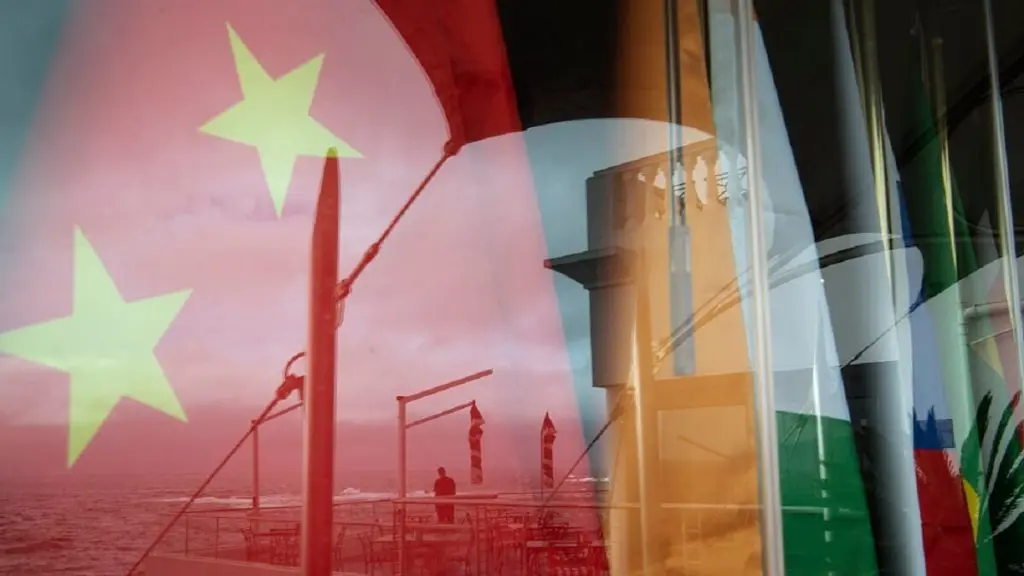Analyst: BRICS - “superpower” in energy sector
The BRICS alliance is looking to uproot the US dollar’s hegemony and replace it with local currencies.
The bloc wants to stop using the US dollar to settle cross-border transactions and is aiming to push local currencies ahead, according to Watcher.Guru.
BRICS wants to become a superpower and challenge the US and other Western allies in the global financial sphere.
Expert says BRICS is a superpower in the energy sector

Marco Fernandes, a researcher at the Tricontinental Institute of Public Research noted that BRICS constitutes 45 per cent of the world’s oil reserves and 56 per cent of gas reserves. He wrote that BRICS is a superpower in the energy sector and the US and Western allies don’t come close.
Fernandes explained that BRICS member Russia alone accounts for half of the world’s production of enriched uranium. In addition, Russia and China account for about 70 per cent of the global uranium production. Therefore, the BRICS bloc is well-equipped in the energy sector and is a superpower, he said.
“Energy is probably the key asset for industrialization. If you don’t have energy, you’re out of the game. The BRICS countries, with their combined energy capabilities, have become a superpower in energy,” said Fernandes.
The expert stressed that BRICS countries surpass all G7 nations in renewable energy. “Brazil, China, and India combined produce more renewable energy than all the G7 countries,” he said.
If Saudi Arabia joins BRICS, the alliance will further strengthen its grip on the global oil and gas sector. Saudi Arabia has yet to accept the invitation and become a part of the grouping. The Kingdom is evaluating the pros and cons before accepting or rejecting the invitation.
BRICS is an informal group of states comprising the Federative Republic of Brazil, the Russian Federation, the Republic of India, the People’s Republic of China and the Republic of South Africa.
It was the Russian side that initiated the creation of BRICS.
On September 20, 2006, the first BRICS Ministerial Meeting was held at the proposal of Russian President Vladimir Putin on the margins of a UN General Assembly Session in New York. Foreign ministers of Russia, Brazil and China and the Indian Defence Minister took part in the meeting. They expressed their interest in expanding multilateral cooperation.
On May 16, 2008, Yekaterinburg hosted Meeting of BRICS Foreign Ministers on the initiative of Russia. After the meeting, a Joint Communique was issued, reflecting common stances on topical global development issues.
Another important step was taken on July 9, 2008, when Russian President Dmitry Medvedev met with Brazilian President Luiz Inacio Lula da Silva, Indian Prime Minister Manmohan Singh and Chinese President Hu Jintao on the margins of the G8 Summit in Toyako, Japan, on the Russian initiative.
On the Russian initiative on June 16, 2009, Yekaterinburg hosted the first BRIC Summit. BRIC Leaders issued a joint statement after the Summit. The document set forth the goals of BRIC “to promote dialogue and cooperation among our countries in an incremental, proactive, pragmatic, open and transparent way. The dialogue and cooperation of the BRIC countries is conducive not only to serving common interests of emerging market economies and developing countries, but also to building a harmonious world of lasting peace and common prosperity.” The document outlined a common perception of ways to cope with the global financial and economic crisis.
The growing economic might of BRICS countries, their significance as one of the main driving forces of global economic development, their substantial population and abundant natural resources form the foundation of their influence on the international scene.
In 2013, BRICS accounted for about 27 per cent of the global GDP (in terms of the purchasing power parity of their national currencies). The total BRICS population is 2.88 billion (42 per cent of the entire global population), and the five countries cover 26 per cent of the planet’s land.
BRICS countries are influential members of leading international organisations and agencies, including the UN, the G20, the Non-Aligned Movement and the Group of 77. They are also members of various regional associations. The Russian Federation is a member of the Commonwealth of Independent States, the Collective Security Treaty Organisation and the Eurasian Economic Union. Russia and China are members of the Shanghai Cooperation Organisation and the Asia Pacific Economic Cooperation. Brazil is a member of the Union of South American Nations, MERCOSUR and the Community of Latin American and Caribbean States. The Republic of South Africa is a member of the African Union and the Southern African Development Community. India is a member of the South Asian Association for Regional Cooperation.
Relations between BRICS partners are built on the UN Charter, generally recognised principles and norms of international law and the following principles, which were agreed by member countries at their 2011 Summit: openness, pragmatism, solidarity, non-bloc nature and neutrality with regard to third parties.
BRICS work is based on action plans approved during annual summits since 2010.








